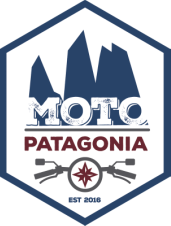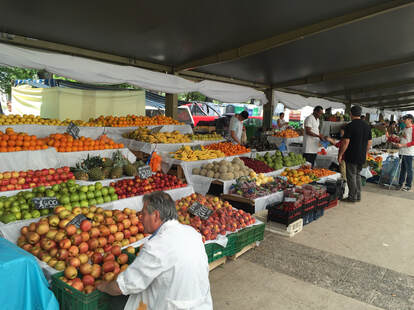How can you learn Spanish? Well, for starters you must want to learn the language.
The commitment it takes to learn a new language and be fluent takes practice and time.
I get asked two questions a lot from our riders.
One: Did I know Spanish before moving to Chile? Answer: No
Two: How did I learn to speak Spanish. Answer: total immersion
I put in a serious effort before moving to Chile. For months I took classes two nights a week for two hours each night at the Latin American Association in Atlanta, GA, which I highly recommend for anyone in Atlanta with the desire to learn Spanish. I put in the time; I was the only student to show up on time to every class every night. I studied, I tried to follow the lessons. But I just didn’t advance as I thought I would, considering the time I was putting into learning. That is not a knock on the Latin American Association more a fact of the mater about how learning a new language requires some type of immersion.
If you can establish a base and then immediately start some type of ¨intercambio¨ classes to speak with a native speaker that is what will help you progress. I found that all the classes I took did very little in comparison to my first year in Chile and the fact that if I wanted something, or I needed to go somewhere I had to ask and I had to ask in Spanish. When you have no choice, you learn quickly the phrases, words and sentence structure so you can get out on your own with the basics.
Advancing to a higher level:
My first few jobs in Chile were in auto shops, that is my trade so naturally it’s a trade I can take anywhere. But like all things in a new country, I had to learn the technical words and the cultural shop dynamic. In short, the learning curve for me personally was steep. None of the guys in the shops spoke English except the owners but they were not in the actual shop with me working so I had to interact with other mechanics and express the things I needed so that I could get some work done. Just think, if you’re a mechanic and you need a rag but don’t know how to say “I need a rag” in Spanish, how frustrating something like that is.
Now think you are working on a new Range Rover and you need to say; “a rat ate all the control wires under the battery tray and it will take me all day to repair the wiring harness, but don’t worry I can do it.” How do I say, “Battery Tray”, “Wiring Harness”, “don’t worry” … etc. All this became a game of patience on my part because I felt dumb, even though I knew what I was doing.
However, most of all it limited me in a way I had not experienced before.
This is the most frustrating part of not speaking Spanish in Latin America. The limitations it puts on your experiences. When you travel you really want to talk to the locals and have some type of connection with them, in my experience language is a deep-rooted part of every culture. Learning the language opens doors and can help you to have a better experience and be less frustrated at times.
If you plan to spend any amount of time in Latin America it is a great idea to learn a few phrases beyond “dónde está el baño” and “más cerveza por favor.” Although those two are important I think being able to talk to someone face to face and express yourself and then understand them when they reply will be a game changer in what you experience while traveling here in Latin America.
A couple of tips I think might help you during your quest to learn Spanish. Establish the basics through classes, either online, or in a real classroom. After getting the basics and gaining confidence, search for a Meet Up and try to find groups in which the sole focus is to speak Spanish. There you can try out your newly learned basics in the real world.
After that, it is up to you to maintain the new skill.
If you don’t use it, you will lose it.
Bellow is a typical open air market in Santiago.
If you wanna buy your fruits and veggies here, Ya better speak Spanish!
The commitment it takes to learn a new language and be fluent takes practice and time.
I get asked two questions a lot from our riders.
One: Did I know Spanish before moving to Chile? Answer: No
Two: How did I learn to speak Spanish. Answer: total immersion
I put in a serious effort before moving to Chile. For months I took classes two nights a week for two hours each night at the Latin American Association in Atlanta, GA, which I highly recommend for anyone in Atlanta with the desire to learn Spanish. I put in the time; I was the only student to show up on time to every class every night. I studied, I tried to follow the lessons. But I just didn’t advance as I thought I would, considering the time I was putting into learning. That is not a knock on the Latin American Association more a fact of the mater about how learning a new language requires some type of immersion.
If you can establish a base and then immediately start some type of ¨intercambio¨ classes to speak with a native speaker that is what will help you progress. I found that all the classes I took did very little in comparison to my first year in Chile and the fact that if I wanted something, or I needed to go somewhere I had to ask and I had to ask in Spanish. When you have no choice, you learn quickly the phrases, words and sentence structure so you can get out on your own with the basics.
Advancing to a higher level:
My first few jobs in Chile were in auto shops, that is my trade so naturally it’s a trade I can take anywhere. But like all things in a new country, I had to learn the technical words and the cultural shop dynamic. In short, the learning curve for me personally was steep. None of the guys in the shops spoke English except the owners but they were not in the actual shop with me working so I had to interact with other mechanics and express the things I needed so that I could get some work done. Just think, if you’re a mechanic and you need a rag but don’t know how to say “I need a rag” in Spanish, how frustrating something like that is.
Now think you are working on a new Range Rover and you need to say; “a rat ate all the control wires under the battery tray and it will take me all day to repair the wiring harness, but don’t worry I can do it.” How do I say, “Battery Tray”, “Wiring Harness”, “don’t worry” … etc. All this became a game of patience on my part because I felt dumb, even though I knew what I was doing.
However, most of all it limited me in a way I had not experienced before.
This is the most frustrating part of not speaking Spanish in Latin America. The limitations it puts on your experiences. When you travel you really want to talk to the locals and have some type of connection with them, in my experience language is a deep-rooted part of every culture. Learning the language opens doors and can help you to have a better experience and be less frustrated at times.
If you plan to spend any amount of time in Latin America it is a great idea to learn a few phrases beyond “dónde está el baño” and “más cerveza por favor.” Although those two are important I think being able to talk to someone face to face and express yourself and then understand them when they reply will be a game changer in what you experience while traveling here in Latin America.
A couple of tips I think might help you during your quest to learn Spanish. Establish the basics through classes, either online, or in a real classroom. After getting the basics and gaining confidence, search for a Meet Up and try to find groups in which the sole focus is to speak Spanish. There you can try out your newly learned basics in the real world.
After that, it is up to you to maintain the new skill.
If you don’t use it, you will lose it.
Bellow is a typical open air market in Santiago.
If you wanna buy your fruits and veggies here, Ya better speak Spanish!


 RSS Feed
RSS Feed



